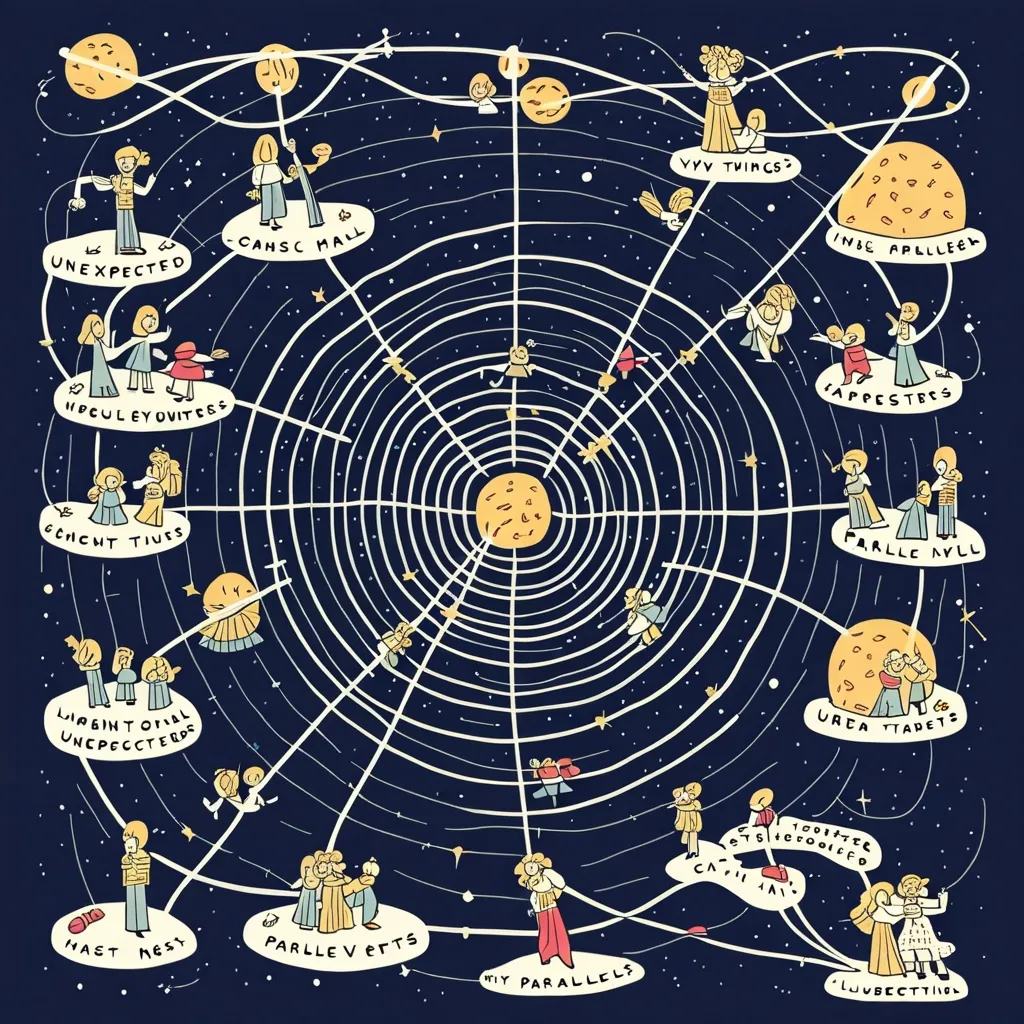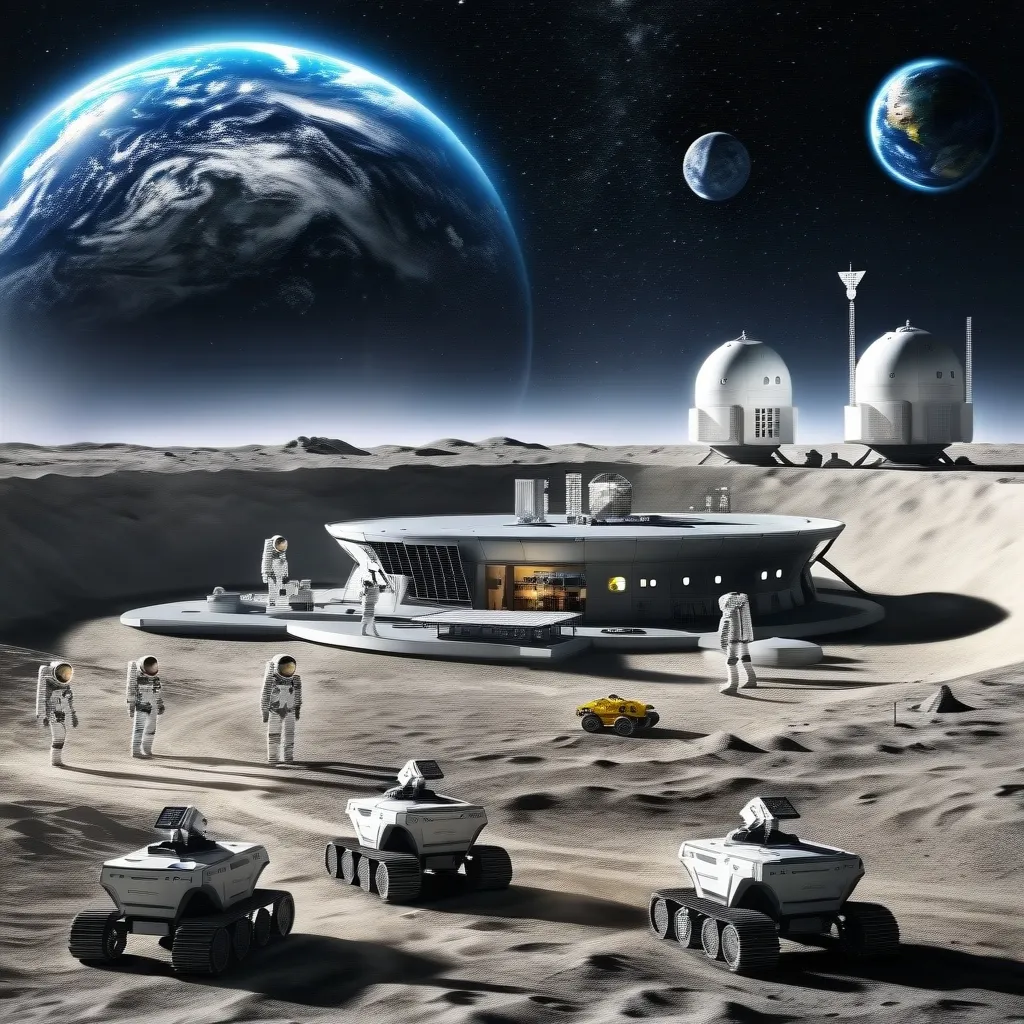The Power of Prophecy: When Predictions Come True
Ever had that eerie feeling when something you jokingly predicted actually happened? Now imagine that on a much grander scale. Throughout history, there have been some seriously mind-blowing predictions that hit the nail on the head. We’re talking about visionaries who seemed to have a crystal ball tucked away somewhere.
Let’s kick things off with the tech gurus of yesteryear. Nikola Tesla, the guy who was basically the godfather of electricity, had some pretty wild ideas back in 1909. He was all about wireless communication devices that anyone could carry around. Sound familiar? Yep, he basically described our smartphones and Wi-Fi before they were even a twinkle in Steve Jobs’ eye.
And then there’s John Elfreth Watkins, an engineer who, in 1900, was like, “Hey, by the year 2000, we’ll be chatting with people across the world wirelessly.” Dude, spot on! He even predicted ready-made meals. I mean, who doesn’t love a good microwave dinner when you’re too lazy to cook?
But it’s not just the tech nerds who were nailing these predictions. Science fiction writers were on a whole other level. Jules Verne wrote about a moon landing in 1865, over a hundred years before Neil Armstrong took that giant leap. He even got the launch site right - Florida, baby! And Ray Bradbury? He described earbuds in his book “Fahrenheit 451” way back in 1953. Makes you wonder if these guys had a time machine stashed away somewhere.
Speaking of time machines, let’s talk about some predictions that are straight-up spooky. Nostradamus, that French dude who lived in the 1500s, supposedly predicted a bunch of major world events. The Great Fire of London in 1666? He called it. Some people even think he foresaw the rise of Hitler and the 9/11 attacks. Now, his prophecies are pretty vague and open to interpretation, but still, it’s enough to make you go “Hmm…”
And we can’t forget about Baba Vanga, the Bulgarian mystic who was dropping truth bombs left and right. She talked about cyber warfare and economic turmoil way before they became daily news headlines. She even predicted advances in medical research, like the HPV vaccine. Not too shabby for someone born in 1911!
Now, you might be thinking, “Okay, but how accurate are these predictions really?” And that’s a fair question. It’s easy to look back and connect the dots, making vague statements seem more precise than they actually were. But even with that in mind, some of these predictions are just too spot-on to ignore.
Take Mark Twain, for example. The guy literally predicted his own death. He said he came into the world with Halley’s Comet in 1835 and he’d go out with it when it came back. Lo and behold, he died in 1910, just as the comet was passing by Earth again. Talk about timing!
Or how about Arthur C. Clarke describing what sounds exactly like an iPad in his book “2001: A Space Odyssey” - in 1968! That’s 42 years before Apple dropped the real deal. Makes you wonder if Steve Jobs was a sci-fi fan, doesn’t it?
But here’s the thing - it’s not just about getting it right. These predictions, whether they come true or not, show us the incredible power of human imagination. They remind us that the future isn’t set in stone. It’s shaped by the wild ideas and crazy dreams of people who dare to think differently.
Think about it. Every major breakthrough in history started as someone’s crazy idea. The Wright brothers probably got some weird looks when they said they wanted to fly. And I’m sure people thought Elon Musk was nuts when he said he wanted to colonize Mars. But these “out there” ideas are what push us forward.
So, did these prophets and visionaries know something we don’t? Maybe. Or maybe they were just really good at connecting the dots and extrapolating current trends into the future. Either way, their predictions have left a mark on our collective imagination.
It’s kind of like playing a massive game of “What If?” on a global scale. What if we could talk to anyone in the world instantly? What if we could explore space? What if we could cure diseases that seem incurable now? These predictions, whether they come true or not, challenge us to think bigger and push the boundaries of what’s possible.
And let’s be real, it’s pretty fun to look back and see which predictions hit the mark and which ones missed by a mile. Remember when people thought we’d all be zooming around in flying cars by now? Yeah, still waiting on that one. But hey, who knows? Maybe in another 50 years, we’ll be laughing about how we used to be stuck on the ground all the time.
The cool thing about these predictions is that they often become self-fulfilling prophecies. When someone describes a future technology or societal change, it plants a seed in people’s minds. Engineers, scientists, and innovators might read these predictions and think, “Hey, that’s actually a pretty good idea. I wonder if we could make that happen?”
Take the concept of video calls, for example. It was a staple of science fiction for decades before it became a reality. Now, we hop on Zoom calls like it’s no big deal. Or think about smartwatches. They were a staple of spy movies and comics long before Apple and Samsung made them a reality.
But it’s not just about technology. These predictions often touch on social and cultural changes too. Edward Bellamy, in his 1888 novel, described a world where people used credit cards. At the time, it must have seemed like a wild concept. Fast forward to today, and we’re living in a world where cash is becoming less common by the day.
These visionaries remind us that the future is malleable. It’s not some fixed point we’re all heading towards, but something we actively create with our choices and actions. Every time we embrace a new technology, change our habits, or shift our societal norms, we’re shaping the future in real-time.
So, the next time you come across a prediction that seems too wild to be true, don’t dismiss it outright. Remember that today’s science fiction could be tomorrow’s reality. Who knows? Maybe your crazy idea could be the next big prediction that comes true.
In the end, whether these prophets and visionaries knew something we don’t or were just really good at educated guessing, their predictions serve a valuable purpose. They inspire us to dream big, to think outside the box, and to never stop pushing the boundaries of what’s possible.
So, go ahead. Make your own wild prediction about the future. Who knows? In a hundred years, people might be looking back and marveling at how spot-on you were. And even if you’re way off base, hey, at least you’ll give future generations something to laugh about. After all, isn’t that what progress is all about? Learning from the past, living in the present, and always, always dreaming about the future.






